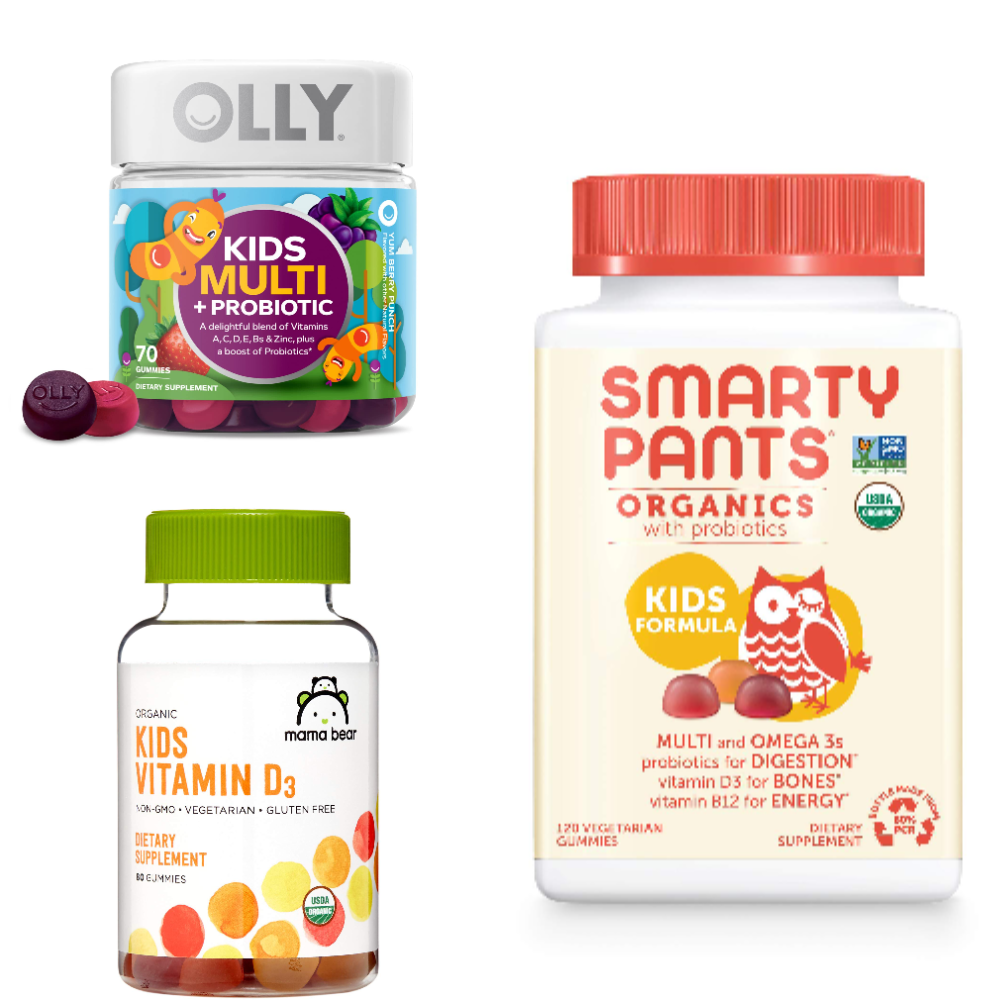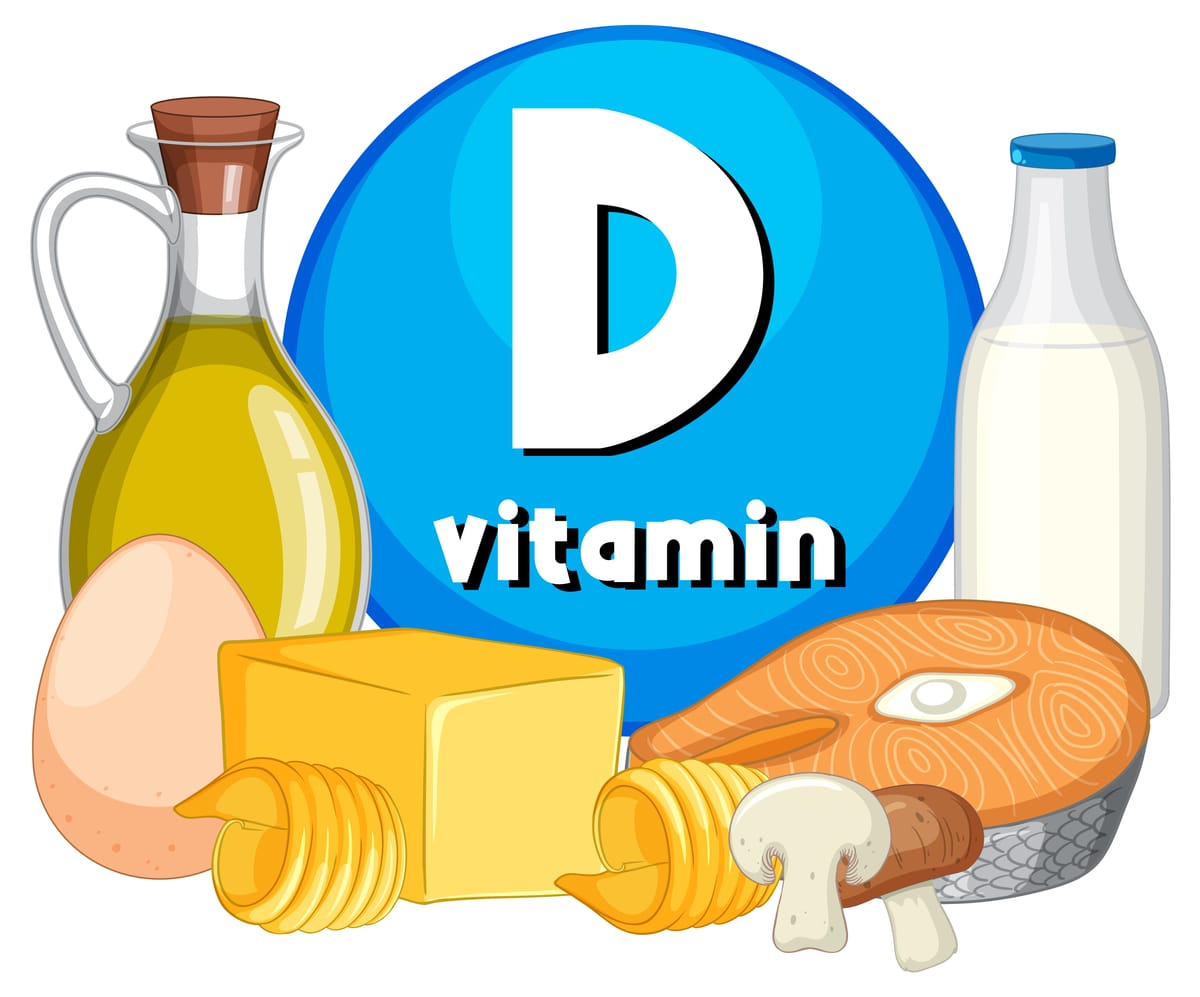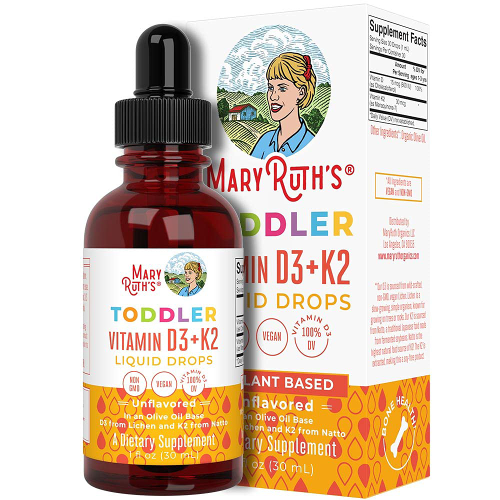Vitamin D is crucial for everyone, but it's particularly vital for infants who are building the foundation for a lifetime of bone health and overall well-being. As a parent, you want to ensure your little one gets enough of this essential nutrient, especially since breast milk may not provide sufficient amounts. This is where vitamin D drops come into play. In this article, we'll explore the best vitamin D drops for infants, diving into what makes them stand out and how they can contribute to your baby's healthy growth.
The Importance of Vitamin D for Infants
Vitamin D plays a significant role in the absorption of calcium and phosphorus, which are key for bone development and strength. For infants, getting enough vitamin D is critical for preventing rickets, a condition that leads to soft and weak bones. While sun exposure can provide vitamin D, it's not always safe or practical for infants, making supplements a necessary alternative.
Breast Milk and Vitamin D: Is It Enough?
Breast milk is often considered the perfect food for babies, but when it comes to vitamin D, it may fall short. Breastfed infants are at a higher risk of vitamin D deficiency due to the low levels of the vitamin in breast milk. This is why the American Academy of Pediatrics recommends vitamin D supplements for all breastfed babies.
Formula-fed Babies and Vitamin D
Many formula-fed babies receive enough vitamin D in their diet, as formula is fortified with this nutrient. However, it's important to check the supplement label to ensure that your baby is getting the recommended intake, especially if they consume less than 32 ounces of formula daily.
Recognizing Vitamin D Deficiency in Infants
Vitamin D deficiency can be hard to spot, as symptoms may not be obvious. However, signs can include poor growth, bone pain, muscle weakness, and a soft skull. If you suspect a deficiency, consult your baby's doctor for proper evaluation and guidance.
Choosing the Best Vitamin D Drops for Infants
When selecting vitamin D drops for your baby, look for products that are third-party tested for purity and potency. The best vitamin D drops for infants should be free from artificial flavors, colors, and additives. Brands like Nordic Naturals Baby's Vitamin D3 and Baby Ddrops are popular choices among parents.
The Role of Organic Ingredients in Vitamin D Drops
Organic vitamin D drops are made without synthetic pesticides and fertilizers, offering a pure and natural option for your baby. Certified USDA organic products, like those containing extra virgin olive oil or fractionated coconut oil as a base, can provide peace of mind for health-conscious parents.
Understanding the One-Drop Dosage
Many infant vitamin D supplements are designed to deliver the necessary daily dose in just one drop. This makes administration easy and ensures that your baby receives the correct amount without the risk of over-supplementation.
The Significance of Third-Party Testing for Baby Vitamin D Drops
When it comes to the health and safety of your little one, third-party testing is not just a buzzword; it's a crucial stamp of approval. Third-party tested baby vitamin D drops to ensure that what's on the label is what's in the bottle—nothing more, nothing less. This independent verification means that the vitamin D supplement has been scrutinized for quality and purity by an objective entity, providing an extra layer of trust for parents. Nordic Naturals products, for instance, pride themselves on this rigorous testing, ensuring that their supplements, including the popular Nordic Naturals Baby's Vitamin D3, are free from contaminants and meet the highest standards.
Moreover, third-party testing often checks for common allergens, making sure that the baby's vitamin D drops are gluten-free, non-GMO, and devoid of tree nuts, which is essential for infants with sensitivities or allergies. This meticulous process reassures parents that they are giving their babies a safe and clean product. When you see a bottle that has been third-party tested, you can squeeze that vitamin D supplement into your baby's mouth or mix it with their food, knowing that experts have given the green light for its purity and potency.
The Convenience of Dosing Vitamin D with D Vi Sol
When it comes to ensuring your little one gets their daily dose of vitamin D, the ease of administration is a key factor for busy parents. D Vi Sol is a popular brand that has made a name for itself by offering a straightforward solution. Just a single drop can be easily placed into a baby's mouth or mixed with a small amount of breast milk or formula, making it a hassle-free addition to your baby's diet. This convenience means that even on the go, your infant won't miss out on their essential vitamin D.
Moreover, the design of the dropper is such that it minimizes the risk of giving too much or too little, which is a common concern among parents. With D Vi Sol, you can be confident that your baby is receiving the correct dosage every time, which is crucial for their developing bones and immune system. The simplicity of this method takes the guesswork out of supplementation and provides peace of mind that your baby's nutritional needs are being met with precision.
The Impact of Sunlight Exposure on Infant Vitamin D Levels
When it comes to ensuring your baby gets enough vitamin D, sunlight exposure often comes to mind. However, many parents wonder how much sun is safe for their infant's delicate skin. The American Academy of Pediatrics suggests that just a few minutes of natural sunlight can significantly contribute to an infant's vitamin D levels. But, it's crucial to balance this with the risk of sunburn and long-term skin damage. Therefore, while a stroll in the early morning or late afternoon sun can be beneficial, it's not a standalone solution, and supplementation with products like Nordic Naturals Baby's Vitamin D3 remains essential.
It's also important to note that geographic location, skin pigmentation, and seasonal changes affect the amount of vitamin D the skin produces. For instance, babies living in northern latitudes may not receive adequate sunlight during the winter months to maintain optimal vitamin D levels. In such cases, vitamin D drops become even more critical. Pediatricians often recommend a few drops directly into the baby's mouth or added to a bottle of breast milk or formula, ensuring that even many formula-fed babies who receive some vitamin D still get the full recommended amount.
The Ease of Application: Administering Drops Directly to Baby's Mouth
When it comes to giving your little one their daily dose of health, the ease of application is paramount. Administering vitamin D drops directly to a baby's mouth can seem daunting, but with the right product, it's a breeze. Look for drops that come with a precise dropper or dispenser that ensures you're giving the exact amount without any fuss. This method can be particularly helpful during those times when your baby is fussy or not feeding well, ensuring they still receive the necessary nutrients for their growing bodies.
Moreover, many parents worry about the logistics of giving supplements to their infants. However, with products like Nordic Naturals Baby's Vitamin D3, the process is simplified. These drops are designed to be tasteless and odorless, making them easily accepted by most infants. By placing the drops in a squeeze bottle or directly into your baby's mouth, you can make sure they're getting their full dose without any being lost in a baby's bottle or on their bib, which can happen when mixing supplements with food or drinks.
The Versatility of Vitamin D Drop Formulations
When it comes to administering vitamin D to your little one, the versatility of the drop formulations can be a game-changer for many parents. Unlike bulky pills or chewables that are not suitable for infants, drops can be easily added to a baby's bottle or applied directly to the baby's mouth. This flexibility ensures that even the fussiest of eaters receive their necessary vitamin D without any hassle. Plus, the precise dropper allows for accurate dosing, which is crucial for maintaining the delicate balance of nutrients in an infant's developing system.
Moreover, many formula-fed babies benefit from the added vitamin D in their diet, especially since formula can sometimes lack sufficient levels of this essential nutrient. By incorporating vitamin D drops into their feeding routine, parents can rest assured that their baby is getting the support they need for healthy growth and bone development. The simplicity of drop supplements means that maintaining a consistent vitamin D regimen is straightforward and stress-free for both the baby and caregiver.
Emphasizing the Quality of Infant Supplements
When it comes to our little ones, quality is non-negotiable. That's why third-party testing is such a critical factor for parents when selecting the best vitamin D drops for their infants. This rigorous testing process ensures that the product meets high standards for purity and potency, giving parents peace of mind that they are providing the best for their baby. Non-GMO and gluten-free options are also available, catering to the growing demand for clean, minimal ingredient lists in baby supplements. These attributes are particularly important for parents who are vigilant about avoiding potential allergens and genetically modified organisms in their baby's diet.
Nordic Naturals Baby's Vitamin D3 is a prime example of a product that has been third-party tested to guarantee its quality. Parents can trust that they are giving their baby a supplement that is not only effective but also safe and free of contaminants. It's essential to consult with your baby's doctor before starting any new supplement to ensure it aligns with your infant's specific health needs. By choosing a high-quality, third-party-tested vitamin D drop, you are taking an important step in supporting your baby's overall well-being.
The Role of Diet in Enhancing Vitamin D Intake for Infants
As infants grow, their diet begins to diversify, and it becomes possible to introduce vitamin D through solid foods. While breast milk and formula are the primary sources of nutrition for infants, the introduction of vitamin D-rich foods can complement their diet as they reach the appropriate age for solid foods. Foods such as egg yolks, salmon, and fortified cereals can help boost vitamin D intake. However, the quantities consumed by infants are usually too small to solely rely on diet for adequate vitamin D levels, which is why supplementation with third-party tested drops remains a key recommendation by health professionals.
Parents should always consult with their baby's doctor before introducing new foods or supplements to their baby's diet. This is especially important for babies with dietary restrictions or allergies. For instance, if an infant requires a gluten-free or non-GMO diet, parents must ensure that any vitamin D supplements, like Baby Ddrops, meet these requirements. Fortunately, many high-quality vitamin D drops for infants are designed with these considerations in mind, offering safe and tailored options to support the health of all infants, regardless of their specific dietary needs.
Gluten-Free and Non-GMO: A Healthier Choice for Infants
In today's health-conscious world, parents are more vigilant than ever about what goes into their baby's body. Choosing vitamin D drops that are both gluten-free and non-GMO is becoming a priority for many. These attributes ensure that the supplements are free from common allergens and genetically modified organisms, which can be particularly important for infants with sensitivities or for parents who prefer to keep their baby's diet as natural as possible.
Nordic Naturals Baby's Vitamin D3 is an excellent example of a product that meets these criteria. It's not only third-party tested for purity and potency but also adheres to strict standards for being gluten-free and non-GMO. This commitment to quality means that you're providing your baby with a pure and safe supplement. As more parents lean towards organic and natural products, these features become selling points that set certain brands apart in the crowded market of infant health.
Incorporating Vitamin D Drops into Your Baby's Diet
Introducing vitamin D drops to your baby's diet can be a seamless experience with the right product. Many parents prefer a liquid form of vitamin D supplement because it can be easily administered by adding a drop directly into the baby's mouth or mixing it with a small amount of vegetable juice or another preferred liquid. For those parents who are managing multiple tasks, the convenience of a squeeze bottle allows for quick and accurate dispensing, ensuring that the baby receives the correct dosage without any fuss. The bottle design is particularly important; some bottles are designed to be turned the bottle upside down to dispense a single drop, while others may be partially filled to allow for a more controlled release.
For parents who are formula-feeding, many formula-fed babies receive a fortified formula that already contains some vitamin D. However, supplementation might still be necessary to reach the recommended daily intake. In such cases, adding baby vitamin D drops to the baby's bottle before a feed can be an effective method. It's important to consult with your baby's doctor to determine the right dosage and to ensure that the supplement is appropriate for your baby's needs. Whether your baby feeds at the breast or bottle, incorporating vitamin D drops into their diet can support their overall health and development.
Administering Vitamin D Drops to Your Baby
Vitamin D drops can be given directly into the baby's mouth or added to a bottle of breast milk or formula. If you choose to give the supplement directly, make sure your baby latches onto the dropper to avoid spillage on a clean surface.
The Safety of Liquid Supplements for Infants
Liquid vitamin D supplements are generally considered safe for infants when used according to the recommended dosage. They allow for precise dosing and are easy for babies to swallow compared to other forms of dietary supplements.
The Benefits of Vitamin D Beyond Bone Health
While bone health is the most well-known benefit of vitamin D, it also supports healthy growth, brain development, and immune function. Ensuring your infant has adequate vitamin D levels can contribute to many health benefits throughout their early years.
Baby Ddrops: A Convenient Option
D drops is another favorite among parents due to its ease of use and minimal ingredient list. The drops are designed to be administered in just one drop dosage, making it simple to provide your baby with the essential vitamin D they need.
The Cost of Vitamin D Drops for Infants
When considering the best vitamin D drops for your baby, it's important to compare drop price points. While some options may be more expensive, they often offer higher-quality ingredients and better manufacturing practices, such as third-party testing.
The Importance of Consulting a Healthcare Professional
Before starting any supplement regimen for your infant, it's crucial to speak with a healthcare professional. They can provide personalized advice on how much vitamin D your baby needs and recommend a suitable product.


How much vitamin D do infants need daily?
The American Academy of Pediatrics recommends that infants receive 400 IU of vitamin D per day, starting soon after birth. However, babies who are exclusively breastfed may need to receive a supplement due to the low vitamin D content of breast milk. Consult with your healthcare provider for individualized advice.
Can I give my baby more than one drop of vitamin D if I miss a dose?
No, you should not give more than the recommended one-drop dosage of vitamin D to make up for missed doses. Consult your baby's healthcare professional for guidance on what to do if a dose is missed.
Are there any risks associated with vitamin D drops for infants?
When used as directed, vitamin D drops are generally safe for infants. However, over-supplementation can lead to vitamin D toxicity, which is why it's important to adhere to the recommended dosage and consult with a healthcare professional.

Ensuring your infant receives enough vitamin D is essential for their bone health and overall development. The best vitamin D drops for infants are those that are third-party tested, free from unnecessary additives, and provide the recommended dosage in a single drop. Organic options like Nordic Naturals Baby's Vitamin D3 and Baby Ddrops are excellent choices for parents seeking high-quality, convenient supplements. Always consult with your baby's doctor before starting any new supplement to ensure it's appropriate for your child's needs.













